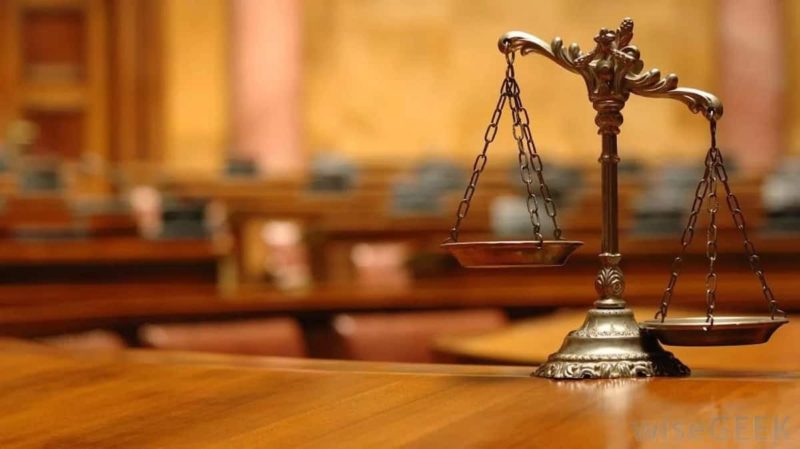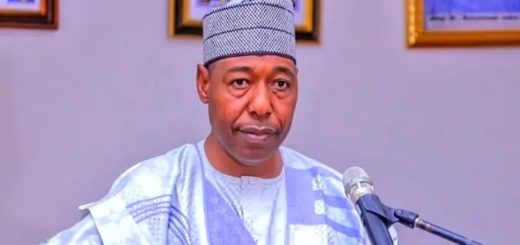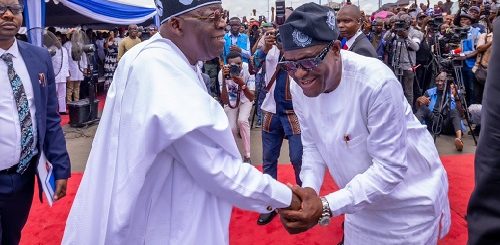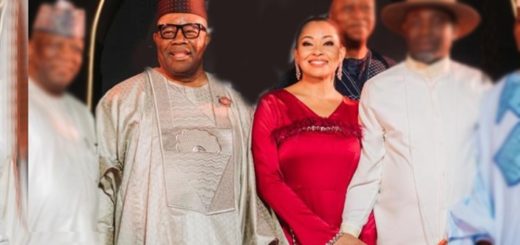BREAKING: Mass Trial Of #EndBadGovernance Protesters To Begin Monday In Abuja, Kano, Others As Falana-Led Legal Team Prepares Defence
 The mass trial of #EndBadGovernanceInNigeria protesters is scheduled to commence on Monday, September 2, 2024 in Abuja, Kano, Kaduna and Borno courts.
The mass trial of #EndBadGovernanceInNigeria protesters is scheduled to commence on Monday, September 2, 2024 in Abuja, Kano, Kaduna and Borno courts.
SaharaReporters learnt that those detained over the #EndBadGovernance protests in Abuja will be tried in Justice Emeka Nwite’s court.
Meanwhile, human rights lawyer, Mr Femi Falana (SAN) will be leading a team of lawyers to defend the protesters.
Amnesty International Nigeria had said that over 2,000 protesters were arrested across the country during the 10-day protests against hunger and misgovernance tagged #EndBadGovernanceInNigeria.
It demanded the unconditional release of those arrested, insisting that instead government should begin to address the issues that led to the protests in the first place.
Specifically, Amnesty International said out of the 2,111 suspects arrested across the country, 1,403 had been arraigned in various courts.
It lamented that the suspects were ordered to be remanded in prison custody due to a lack of legal representation.
Last Sunday, SaharaReporters reported that Justice Nwite of the Federal High Court in Abuja had granted the police’s request to remand 124 protesters in custody for 60 days, pending the completion of investigations.
The court’s interim order was issued in response to separate ex-parte motions filed by police counsel Ibrahim Mohammed, allows for the suspects’ continued detention.
Notably, the court directed that minor suspects be held at the Borstal Home of the correctional centre until the conclusion of investigations.
The affected protesters include minors, who were accused of terrorism and treasonable felonies.
the Inspector-General (IG) of Police sought an interim order to remand the suspects until the conclusion of the investigation, which was granted by Justice Emeka Nwite.
The applications were brought pursuant to Section 66(1) of the Terrorism (Prevention and Prohibition) ACT 2022, Section 35 (1) (c) of the 1999 Constitution of the Federal Republic of Nigeria (as amended) and Section 299 the Administration of Criminal Justice ACT 2015 and under the inherent jurisdiction of this honourable court to administer justice
In the first motion ex-parte marked: FHC/ABJ/CS/1154/2024, between Inspector General of Police as Complainant/Applicant and 75 protesters; the police alleged they committed acts of terrorism, treason, and treasonable felonies, including arson and terrorism.
The police said the offence was contrary to Sections 2(1) and (3), 24 and 26 of the Terrorism (Prevention and Prohibition) Act 2022; Sections 41 and 42 of the Criminal Code Act; Sections 410, 411, and 412 of the Penal Code Act; and Section 4 of the Miscellaneous Offences Act CAP M17 Laws of the Federation of Nigeria 2004 and other enabling statutes.
In the second ex-parte motion with Suit No. FHC/ABJ/CS/1223/2024, the police also sought an order to remand another set of 49 defendants for 60 days pending the conclusion of the investigation.
The defendants include Comrade Opaluwa Eleojo, Michael Adaramuye, Musiu Sadiq, Buhari Lawal, Love Angel Innocent, Suleiman Yakubu, Yunusa Aliyu, Ahmad Nasir, Muhammed Sani, Iliyasu Anas, Abdullahi Sani and Gaddafi Muhammed.
Others include Abubakar Ibrahim 18 Years, Abubakar Adam 19 Years, Suleiman Ali 16 Years, Mubarak Mas’ud 23 Years, Umar Musa 19 Years, Aminu Hussaini 20 Years, Umar Muhd Kabir 23 Years, Ibrahim Aliyu Musa 24 Years, Aminu Muhd 24 Years, Abba Usman 30 Years, Usman Muhd 20 Years, Umar Inusa 18 Years, and Tasi’u Lawan 17 Years.
Others include Ibrahim Rabi’u 16 Years, Jamilu Haruna 16 Years, Muktar Yahaya 17 Years, Usman Surajo 18 Years, Musa Adam 22 Years, Usman Yusuf 22 Years, Usman Yunusa 20 Years, Bello Abdullahi 23 Years, Abba Adamu 22 Years, Isma’il Yunusa Abdullahi 28 Years, Abdullahi Suleiman 17 Years, Haruna Suleiman 22 Years, Suleiman Dauda 17 Years, Abbas Hamza 26 Years, Abubakar Abdullahi 18 Years, and Umar Muhd Sani 26 Years.
Among them are Yusuf Haruna Lawan 21 Years, Yahaya Musa 18 Years, Yahaya Sani 20 Years, Abdullahi Sani 21 Years, Abdulbasit Abdulsalam 34 Years, Muktar Ishaq Alhassan 16 Years, Sani Aliyu 17 Years, Mahmud Mustapha 16 Years, Umar Muhd 24 Years, Umar Abdullahi 17 Years, Tasi’u Muhd 18 Years, Habibu Sani 17 Years, Auwalu Abdullahi 21 Years, Abdulmalik Auwal 19 Years, Umar Ahmad Umar 25 Years, Abubakar Muhd 22 Years, Mustapha Abubakar 17 Years, Umar Ahmad Muhd 24 Years, Sani Hassan Idris 17 Years, Abdulrahaman Ibrahim 17 Years, Kabiru Sani 25 Years, Sammani Ali 25 Years, Abba Ahmad 23 Years, Sa’idu Usman Usman 25 Years, and Salisu Adamu 16 Years.
On Monday, SaharaReporters reported that President Bola Tinubu’s administration had found support from Justice Nwite of the Federal High Court in Abuja to suppress opposition to its policies, which critics argue are harmful to the people and democracy.
These policies, implemented over the past 15 months, have led to widespread poverty and a surge in the cost of living, with basic food items like beans and rice reaching record prices of N400 and N300 per cup, respectively.
However, the government’s policies have targeted dissenting voices and media practitioners, with Justice Nwite’s recent rulings legitimising the crackdown on critics of the administration.
Opponents argue that these policies, introduced within the first 15 months, have had devastating consequences for the nation. The court’s decisions have been perceived as aligning with the government’s position, fueling debates about the delicate balance between governance and the freedom to express dissenting opinions.
Justice Emeka Nwite was the judge who gave an ex-parte order freezing accounts of some alleged #EndBadGovernance protesters.
SaharaReporters last Sunday reported that a Federal High Court in Abuja had issued an order freezing the bank accounts of 32 individuals and companies allegedly linked to the #EndBadGovernance protests that took place across Nigeria between August 1 and August 10.
The protests were meant to highlight the challenges Nigerians faced with increasing hunger, misgovernance and exacerbating insecurity that have forced residents to abandoned their farms, leading to food insecurity.
The order also directed banks to detain account holders or anyone found transacting business on the affected accounts, pending investigation and prosecution.













